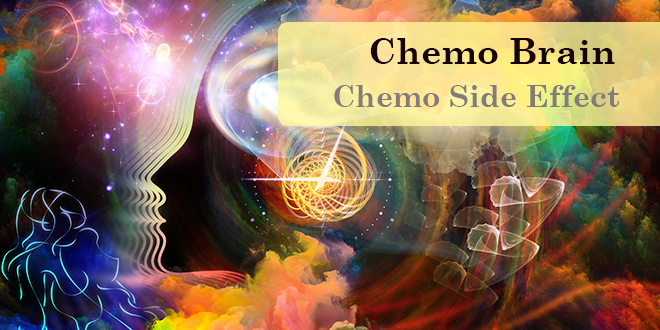‘Chemo Brain’: One of the Major Side Effects of Chemotherapy
Anyone who has taken or is planning to be on chemotherapy should know about the “Chemo Brain”. Let us explain why.
Chemotherapy drugs are strong enough to kill rapidly growing cancer cells, but they also can harm perfectly healthy cells. The resulting side effects of chemotherapy are experienced throughout the body. What is less well-known is how the cancer treatment affects crucial brain functions, like speech and cognition.
If Chemo Is a Poison, How Does it Work?
If chemotherapy is poisonous to both healthy cells and cancer cells, how can they be effective at all without altogether killing the person? The answer lies in the differences in the rate of cell division: cancer cells divide more quickly than healthy cells. Chemotherapy drugs exploit the consequently more rapid metabolic rates difference to target cancer cells. This gives the chemotherapy drug a window to operate with efficacy.
However, healthy cells, especially if they are rapidly dividing ones, suffer collateral damage. Side effects of chemotherapy include fatigue, hair loss and extreme nausea, caused by its deleterious effects on the rest of the body’s systems.
“There Was a Disconnect from My Brain to My Mouth”
“I could think of words I wanted to say, I knew what I wanted to say. … There was a disconnect from my brain to my mouth.” said Yolanda Hunter, a 41-year-old hospice nurse, mother of three and breast cancer patient, “these cognitive side effects of chemotherapy were hard to miss.”
Hunter led a busy, active lifestyle before getting treated for cancer. Now the effects of chemotherapy on her brain made it difficult for her to do even the most basic things.
Hunter added, “I couldn’t even formulate a smile. I had no expression,” she says. “I might feel things on the inside, but it didn’t translate to the outside. … It literally felt like you were trying to fight your way through fog.”
Jane Abraham, Oncologist and a professor at West Virginia University, says about a quarter of patients undergoing chemotherapy have trouble processing numbers, using short-term memory and focusing their attention.
What Is “Chemo Brain”? Side Effects of Chemotherapy Affect the Brain
When on chemotherapy, it’s not unusual to experience problems with balance and coordination. The central nervous system controls emotions, thought patterns, and coordination. Chemotherapy drugs may cause problems with memory, or make it difficult to concentrate or think clearly. This symptom sometimes is called “chemo fog,” or “chemo brain.” This mild cognitive impairment may go away following treatment. Severe cases can add to anxiety and stress. And now researchers are trying to quantify exactly what chemo brain really is.
By using positron emission tomography, or PET, scans to measure blood flow and brain activity, Abraham looked at the brains of 128 breast cancer patients before they started chemotherapy and then again, six months later.
He found significant decreases in brain activity in regions responsible for memory, attention, planning and prioritizing on the second brain scan. Those results were recently presented at the Radiological Society of North America meeting.
Chemotherapy “can cause damage to bone marrow, hair cells, mucosa,” Abraham says. “In the same way, it can potentially cause changes in the brain cells, too.”
“The findings bring up more questions than answers: Do brain changes occur with all types of chemotherapy or just one type? Do they only happen to breast cancer patients or to all cancer patients? These are critical questions that warrant further study.” says Max Wintermark , a brain imaging specialist at the University of Virginia.
“Chemo Brain” Reverses in About a Year or Two After Chemo In Most Cases
Wintermark added there are some simple ways cancer patients can work around “chemo brain”: reminders on sticky notes and detailed grocery lists.
And fortunately there’s still hope, Abraham says, “Chemo brain is almost always temporary. He says, “Patients usually regain their full cognitive abilities within a year or two after chemotherapy treatment ends.”
Hope4Cancer Treatment Centers provides integrative solutions for cancer and other chronic diseases using non-toxic therapies and non-invasive methods. If you know someone who may need our help, please fill out the form on our website http://www.hope4cancer.local or call us at 888-544-5993 or 619-669-6511.
This article has been adapted from: http://www.healthline.com/health/cancer/effects-on-body#circulatory_and_immune_systems


My sister got diagnosed with breast cancer. I’m wondering about the pricing of this treatment?
Hello Helen. We are not able to give medical advice or treatment estimations directly through our website, but please contact our admissions office at 888-544-5993 or go to https://hope4cancer.com/schedule-a-call/ and fill out the form and one of our admissions officers can get you a consultation with our doctor.
My name is Tammy. I am 58 years old. I have been diagnosed with an advanced stage case of squamous cell melanoma located in my sphenoid sinus. It is a huge tumor, inoperable. The plan of treatment is aggressive chemo therapy followed by radiation. I an not scared, I am just trying to find out what kind of fight I have in front of me, and what to expect when picking up the pieces.
Hello Tammy.
We are so sorry to hear all you are currently going through. This is clearly a very difficult time. We are not able to give medical advice directly through our website or social media platforms, but please contact our admissions office at 888-544-5993 or
go to https://hope4cancer.com/schedule-a-call/ and fill out the form and one of our admissions officers can get you a consultation with our doctor.